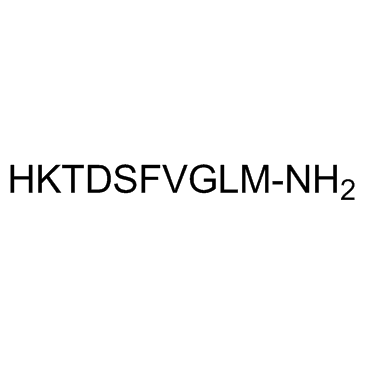The possible link between the elevated serum levels of neurokinin A and anti-ribosomal P protein antibodies in children with autism.
Gehan A Mostafa, Laila Y Al-Ayadhi
文献索引:J. Neuroinflammation 8 , 180, (2011)
全文:HTML全文
摘要
Neurogenic inflammation is orchestrated by a large number of neuropeptides. Tachykinins (substance P, neurokinin A and neurokinin B) are pro-inflammatory neuropeptides that may play an important role in some autoimmune neuroinflammatory diseases. Autoimmunity may have a role in the pathogenesis of autism in some patients. We are the first to measure serum neurokinin A levels in autistic children. The relationship between serum levels of neurokinin A and anti-ribosomal P protein antibodies was also studied.Serum neurokinin A and anti-ribosomal P protein antibodies were measured in 70 autistic children in comparison to 48 healthy-matched children.Autistic children had significantly higher serum neurokinin A levels than healthy controls (P < 0.001). Children with severe autism had significantly higher serum neurokinin A levels than patients with mild to moderate autism (P < 0.001). Increased serum levels of neurokinin A and anti-ribosomal P protein antibodies were found in 57.1% and 44.3%, respectively of autistic children. There was significant positive correlations between serum levels of neurokinin A and anti-ribosomal P protein antibodies (P = 0.004).Serum neurokinin A levels were elevated in some autistic children and they were significantly correlated to the severity of autism and to serum levels of anti-ribosomal P protein antibodies. However, this is an initial report that warrants further research to determine the pathogenic role of neurokinin A and its possible link to autoimmunity in autism. The therapeutic role of tachykinin receptor antagonists, a potential new class of anti-inflammatory medications, should also be studied in autism.
相关化合物
| 结构式 | 名称/CAS号 | 分子式 | 全部文献 |
|---|---|---|---|
 |
神经激肽A
CAS:86933-74-6 |
C50H80N14O14S |
|
Neurogenic airway inflammation induced by repeated intra-eso...
2013-04-01 [Inflammation 36(2) , 493-500, (2013)] |
|
Role of tachykinins and neurokinin receptor subtypes in the ...
2013-02-01 [Neuropeptides 47(1) , 9-18, (2013)] |
|
Neuromodulation mediated by the tachykinin NK3-receptor agon...
2012-06-01 [Exp. Lung Res. 38(5) , 233-49, (2012)] |
|
Distribution and pharmacological characterization of primate...
2011-09-26 [Neurosci. Lett. 503(1) , 23-6, (2011)] |
|
A single fasting plasma 5-HIAA value correlates with 24-hour...
2013-04-01 [Pancreas 42(3) , 405-10, (2013)] |